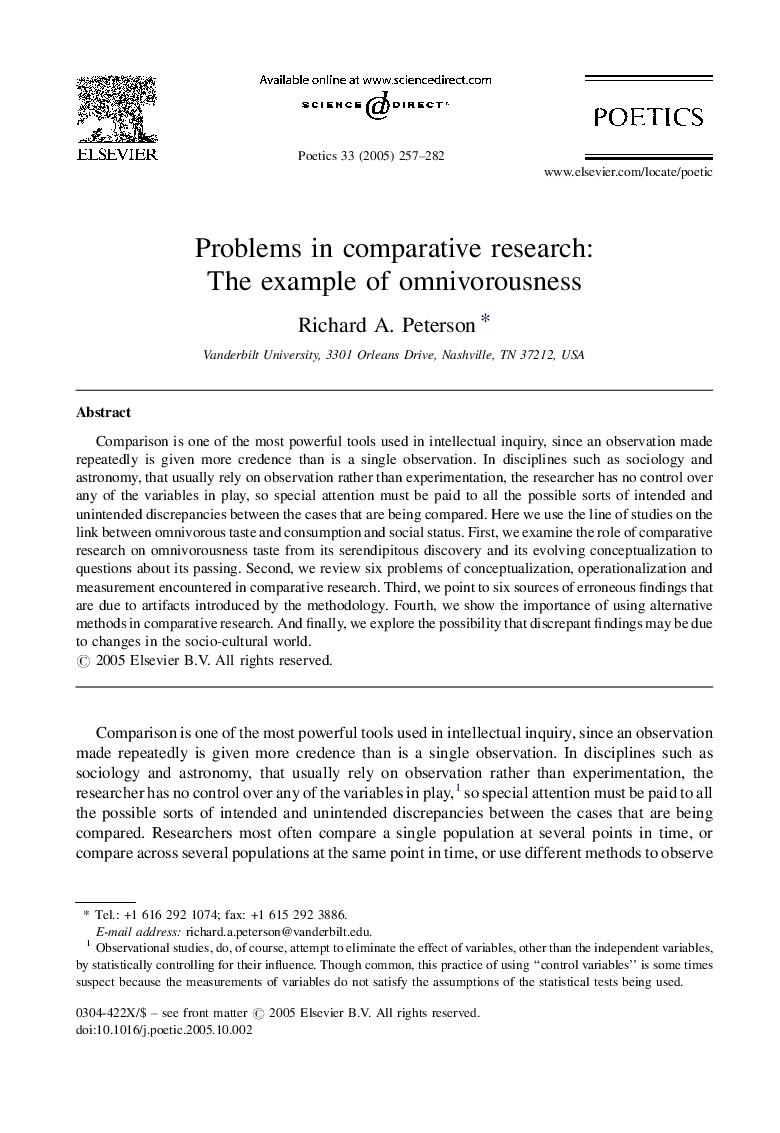| Article ID | Journal | Published Year | Pages | File Type |
|---|---|---|---|---|
| 9739676 | Poetics | 2005 | 26 Pages |
Abstract
Comparison is one of the most powerful tools used in intellectual inquiry, since an observation made repeatedly is given more credence than is a single observation. In disciplines such as sociology and astronomy, that usually rely on observation rather than experimentation, the researcher has no control over any of the variables in play, so special attention must be paid to all the possible sorts of intended and unintended discrepancies between the cases that are being compared. Here we use the line of studies on the link between omnivorous taste and consumption and social status. First, we examine the role of comparative research on omnivorousness taste from its serendipitous discovery and its evolving conceptualization to questions about its passing. Second, we review six problems of conceptualization, operationalization and measurement encountered in comparative research. Third, we point to six sources of erroneous findings that are due to artifacts introduced by the methodology. Fourth, we show the importance of using alternative methods in comparative research. And finally, we explore the possibility that discrepant findings may be due to changes in the socio-cultural world.
Related Topics
Social Sciences and Humanities
Arts and Humanities
Arts and Humanities (General)
Authors
Richard A. Peterson,
